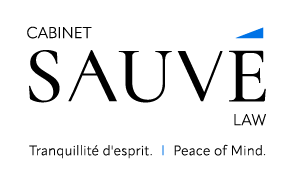Beyond the Legalese: A Plain-Language Guide to Your Real Estate Offer in Ontario
Introduction: The Kitchen Table Moment
Imagine the scene. It’s sitting right there, on your kitchen table. It might have arrived moments ago in an email from your real estate agent, or perhaps you’re the one about to sign it and send it off into the world. It’s the Agreement of Purchase and Sale—the Offer.
For a seller, it’s the culmination of weeks of cleaning, staging, and showings. For a buyer, it’s the gateway to a new chapter of your life. In either case, it’s one of the most significant documents you will ever handle. As your eyes scan the pages, a mix of excitement and anxiety bubbles up. You see the price, clear as day. But you also see a thicket of dense, unfamiliar terms: "irrevocable," "chattel," "warranty," "condition precedent."
This is the moment where the dream of a new home meets the stark reality of contract law. It’s also the moment many people feel a sense of pressure and confusion, signing on a dotted line without fully grasping the promises they are making or the protections they are giving away.
At Sauvé Law, we are passionately committed to changing that experience. We believe that legal counsel isn't about speaking in code; it's about providing clarity. Our plain-language approach is designed to demystify the process, transforming that intimidating document into a tool you can understand and use with confidence. This guide will walk you through the core components of an Ontario real estate offer, translating the legalese so you can navigate your transaction with true understanding and control.
Part 1: The Anatomy of an Offer – Timelines, Parties, and Price
Before we dive into the complex clauses, let's establish the fundamentals. The Agreement of Purchase and Sale (APS) is a legally binding contract. It sets out the entire roadmap for transferring a property from one party to another. The core of the offer identifies the Buyers, the Sellers, the Property Address, and of course, the Purchase Price. But two of the most critical elements on the first page are the dates.
Irrevocable Date: The Ticking Clock
Often misunderstood, the "irrevocability period" is the life span of the offer itself.
- Plain Language: The Irrevocable Date and time is the hard deadline by which the other party must accept the offer as written. If the seller receives an offer from a buyer, the seller must sign and accept it before that irrevocable deadline for it to be a valid deal. If the deadline passes by even one minute, the offer is legally void and cannot be accepted.
- Strategic Importance for Buyers: A short irrevocable period (e.g., a few hours) can put pressure on a seller to make a quick decision, which can be advantageous in a fast-moving market. However, it can also be perceived as aggressive. A longer period (e.g., 24-48 hours) gives the seller more time to consider it, which might be necessary if they are out of town or need to consult with family or their own legal team.
- Strategic Importance for Sellers: When you issue a counter-offer, you are also setting an irrevocable deadline for the buyer. The timeline you set depends on the level of interest in your property. If other showings are booked, you may want a short deadline on your counter-offer so you don’t lose the opportunity to negotiate with another potential buyer.
Closing Date: The Finish Line
This is the date everyone gets excited about. It’s far more than just "moving day."
- Plain Language: The Closing Date is the day legal ownership of the property is to be officially transferred from the seller to the buyer. It's the day the buyer provides the purchase funds and the seller provides the keys (and anything else negotiated and accepted during the offer stage).
- What It Means: On this day, your lawyer and the other party's lawyer are in constant communication. They exchange funds, register the deed of transfer, and finalize the Statement of Adjustments (a document that reconciles costs like prepaid property taxes or condo fees). The length of time between the offer acceptance and the closing date can range from a few weeks to several months and is a key point of negotiation. A seller might need a longer closing to find their next home, while a buyer might want a quick closing to move in before a new school year starts.
Part 2: The Art of the Condition – Your Contractual Safety Valves
This is, without a doubt, the most important section of the offer for protecting your interests. A "conditional offer" means the deal is not yet firm and final. It is conditional upon the completion of certain tasks or the verification of certain information. Think of them as legally enforceable escape hatches.
The Financing Condition: The Mortgage Lifeline
- For Buyers: This is the single most important condition for most buyers. It gives you a set period of time (e.g., 5-10 business days) to secure a satisfactory mortgage commitment from a lender.
- Plain Language: This clause says, "I love this house and I want to buy it, but this deal is only valid if I can get the bank to agree to lend me the money on terms I can afford." It’s not just about getting approved; it’s about being approved for that specific property at an interest rate you are comfortable with. If your application is denied, or if the lender's appraisal of the property comes in too low, this condition allows you to walk away from the deal and get your deposit back. Proceeding without one is a massive financial gamble.
- For Sellers: A financing condition means your sale is not yet guaranteed. Your property is "conditionally sold." While extremely common, you and your lawyer should review the timeframe. An unusually long financing period could tie up your property for weeks, only for the deal to fall through.
The Home Inspection Condition: The X-Ray Vision Clause
- For Buyers: This condition allows you to hire a professional home inspector to conduct a thorough review of the property’s major systems—roof, foundation, electrical, plumbing, HVAC, and more.
- Plain Language: This clause says, "I am buying this house based on what I can see, but I need an expert to check for major problems I can't see." It is not a tool for getting a discount on cosmetic issues or minor repairs. Its purpose is to protect you from catastrophic defects (e.g., a cracked foundation, a fully corroded plumbing system, knob-and-tube wiring). If the inspection reveals a major issue, you typically have three choices: walk away from the deal, ask the seller to fix the issue, or renegotiate the price to cover the cost of the repair.
- For Sellers: To prepare, ensure all areas of the home are accessible to the inspector. If a significant defect is discovered, you’ll need to have a serious conversation with your lawyer about how to proceed. Being forced to put a house back on the market after a failed inspection can create a stigma, so negotiating a solution is often in everyone's best interest
The Sale of Buyer's Property (SOP) Condition: The Domino Effect
- For Buyers: This condition is for those who need the money from the sale of their current home to afford their next one.
- Plain Language: This clause says, "I will buy your home, but only if I can successfully sell my own home by a certain date." It prevents you from being legally obligated to own two homes at once.
- For Sellers: This is one of the riskiest conditions to accept, as your sale is now dependent on an entirely separate transaction you have no control over. To mitigate this risk, your lawyer will insist on including an "Escape Clause." This allows you to continue marketing your property. If you receive another acceptable offer, you provide notice to the first buyer, who then has a short period (usually 24-48 hours) to either waive all their conditions (including the sale of their home) and firm up the deal, or walk away.
Other Common Conditions
- Status Certificate Review (for Condos): This is a mandatory condition for any condo purchase. It allows the buyer's lawyer to review the financial and legal health of the condominium corporation.
- Insurance Condition: Allows the buyer to ensure they can obtain property insurance for the home at a reasonable rate, which can sometimes be an issue for older homes, homes with unique features, or those in high-risk areas.
Part 3: What Stays and What Goes? The Devil in the Details of Chattels & Fixtures
It seems simple, but disputes over items included or excluded from a sale are incredibly common and can sour an entire transaction. The offer must be crystal clear.
- Fixtures: These are items that are physically attached or installed in the property in a way that they are considered part of the real estate. Think of light fixtures, built-in shelving, furnaces, and toilets. Fixtures are assumed to stay with the property unless they are explicitly excluded in the offer.
- Chattels: These are movable personal property. Think of furniture, area rugs, portable kitchen appliances, and decorative mirrors hanging on a nail. Chattels are assumed to go with the seller unless they are explicitly included in the offer.
- Plain Language & The Grey Area: The lines can get blurry. What about the flat-screen TV on a wall mount? The TV is a chattel, but the mount is a fixture. What about the expensive custom drapes designed for the oversized living room window? What about the Ring doorbell or Nest thermostat? The best practice is to leave no room for doubt. Your lawyer will advise you to list everything. If you are a buyer and you love the seller's high-end appliances, they must be listed as included chattels. If you are a seller and your grandmother's dining room chandelier is a family heirloom, it must be listed as an excluded fixture.
Part 4: Promises, Promises – The Long-Term Impact of Warranties
A warranty is a contractual promise made by one party to another. In real estate, sellers are often asked to warrant the condition of certain systems.
- Plain Language: A common warranty is, "The seller warrants that the heating, plumbing, and electrical systems will be in good working order on closing." This does not mean the furnace is new or perfect. It means it does what it’s supposed to do—it produces heat. It protects the buyer from discovering on the day they move in that the furnace is completely dead.
- For Sellers: Be extremely careful about the warranties you provide. If you warrant the swimming pool is in good working order but you know it has a slow leak, you are exposing yourself to a potential lawsuit after closing for misrepresentation. Your lawyer will help you understand the long-term liability of each promise you make. You must also be honest about major hidden defects you know about (known as latent defects), such as a basement that floods every spring. Failing to disclose these can have serious legal consequences.
- For Buyers: Warranties provide a level of post-closing protection. If you turn on the air conditioning the day after you move in and it doesn't work, a warranty for the HVAC system gives you legal grounds to seek compensation from the seller for repairs. Your lawyer will help you negotiate for warranties that provide meaningful and reasonable protection.
Conclusion: Your Guide Through the Maze
Let’s return to the kitchen table again. The Agreement of Purchase and Sale no longer looks like an indecipherable legal text. You can see it for what it is: a series of distinct questions and decisions. You now understand the ticking clock of the irrevocable date, the crucial safety nets of your conditions, the importance of itemizing every last curtain rod, and the lasting impact of the promises you make.
An offer on a home is about more than just the price. It's a complex negotiation that defines your risks, rights, and obligations for a transaction worth hundreds of thousands of dollars. You do not have to navigate it alone or in the dark.
Our job as your plain-language legal team is to be your translator, your strategist, and your shield. We work with you to craft an offer that protects you as a buyer, or to analyze an offer that secures your interests as a seller. We ensure you’re not just signing a contract, but making a fully informed decision that’s right for you and your family.
Whether you're buying or selling in Ontario, if you are preparing to enter the offer process, contact our team at Sauvé Law. We are here to bring clarity to the complexity and provide you with the peace of mind you deserve.










